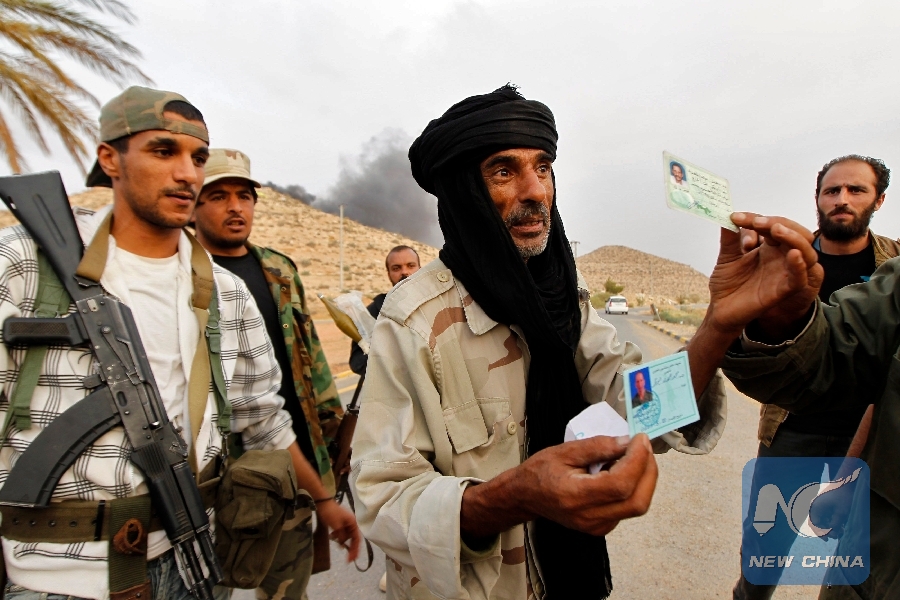
File Photo: A rebel fighter displays identification papers belonging to a Malian mercenary fighting for the forces of Libyan leader Muammar Gaddafi after taking over Bir Ayyad gate near the city of Zintan in the Western Mountains, some 120 km southwest of the capital Tripoli, June 3, 2011. (Xinhua/REUTERS)
UNITED NATIONS, Feb. 4 (Xinhua) -- United Nations Secretary-General Antonio Guterres said Monday that the international body stands ready to continue to support governments in tackling mercenary activities.
"The United Nations stands ready to continue to support governments in tackling mercenary activities, including through deepening our dialogue with relevant regional organizations and national institutions," the UN chief said while addressing the Security Council high-level debate: Mercenaries activities as a source of instability and destabilization in Africa.
"The presence of mercenaries and other foreign fighters worsens conflict and threatens stability," said the secretary-general.
"Mercenary activities undermine the rule of law and perpetuate impunity," he added.
"They abet the illegal and inequitable exploitation of a country's natural resources," he said, adding that "they provoke large-scale displacement and intercommunal tension."
Noting that the nature of mercenary activities has evolved over the years, the secretary-general said that "they are exploiting and feeding off other ills such as transnational organized crime, terrorism and violent extremism."
"In Africa, the focus of today's discussion, mercenary activities remain a serious concern," he said.
"We have seen illicit activities and trafficking by terrorist and mercenary groups operating in the Sahel, as well as the alleged involvement of mercenaries in post-election violence in Cote d'Ivoire in 2010," he added.
The secretary-general called for efforts to tackle all problems related to mercenary activities, including "bolstering the legal regimes."
The UN chief told the Council that only 35 states are parties to the International Convention against the Recruitment, Use, Financing and Training of Mercenaries, adopted by the General Assembly in 1989.
"I call on those states that remain outside the Convention to accede to or ratify it without delay," he said.
The UN chief also called on the international community to "increase bilateral, regional and international cooperation."
"Cooperation on border management will be crucial in stemming the largely unhindered flow of weapons and foreign armed actors throughout Central Africa," he said.
The secretary-general also called for efforts to "examine the political, economic, social and psychological factors that give rise to mercenary activities."
"Together, let us strengthen our work across the spectrum of this challenge -- from prevention to prosecution, and from mitigating the impacts of mercenary activities to addressing the root causes that give rise to them," he said.
Equatorial Guinea, which holds the presidency of the Security Council for February, organized the high-level debate, presided over by President Teodoro Obiang Nguema Mbasogo of Equatorial Guinea. Moussa Faki Mahamat, chairperson of the African Union Commission, also participated.

